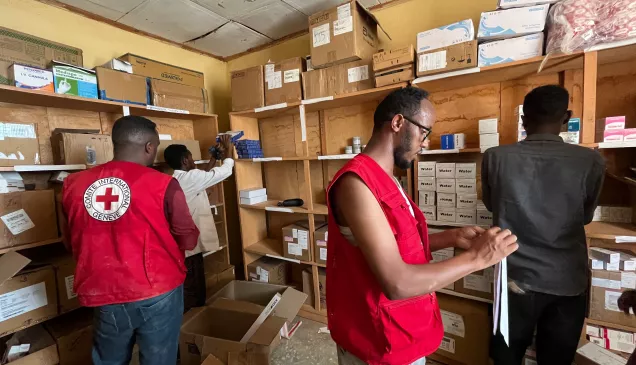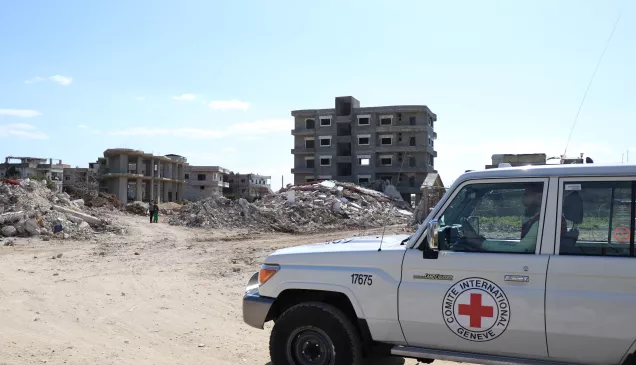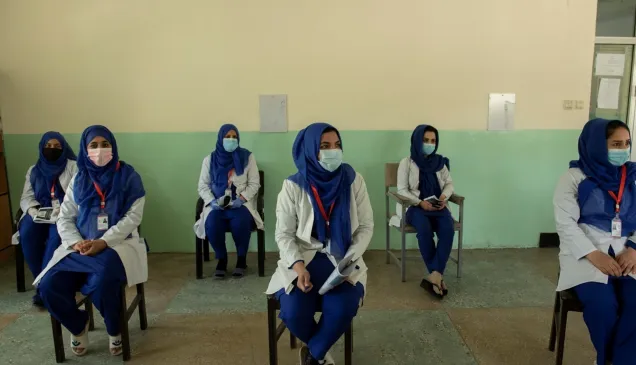Olives bring warmth to Lebanese health centre
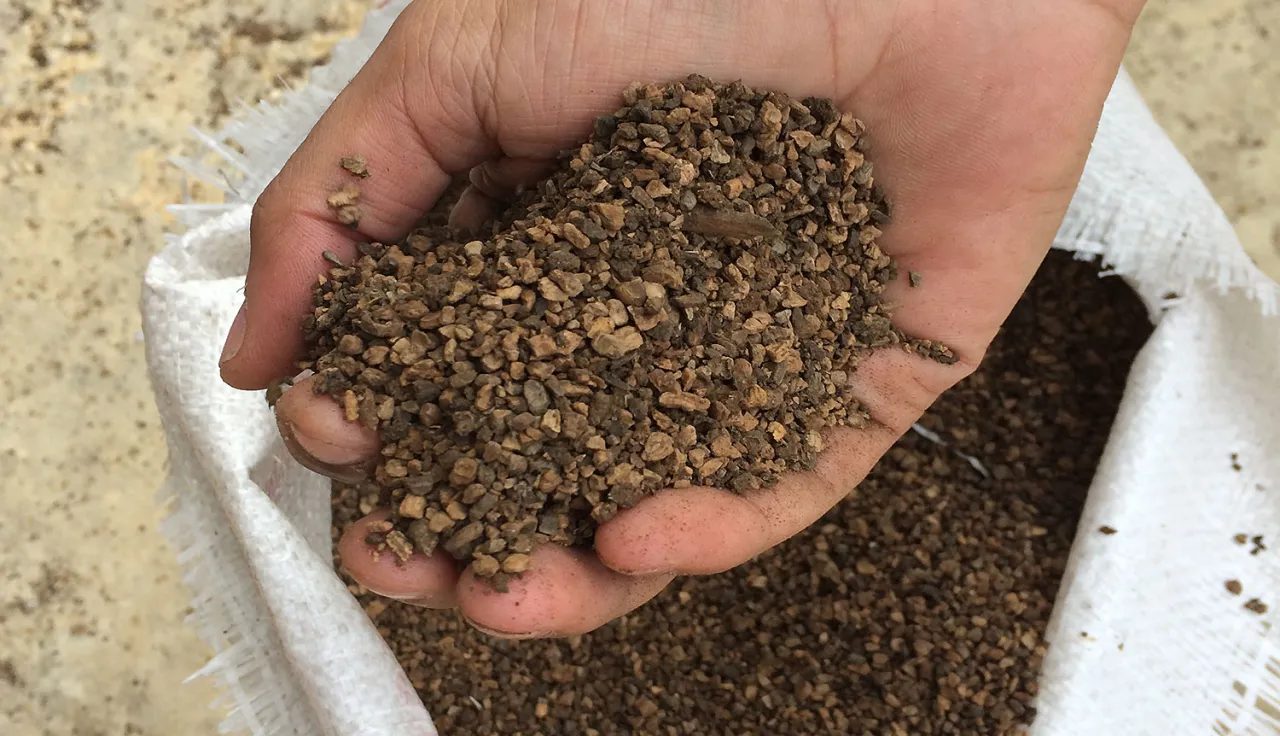
In preparation for the coming winter, which is expected to be particularly harsh, the ICRC recently delivered 10 tons of olive husk fuel to heat the Al Rahma health clinic in the mountainous area of Chebaa in the south-east of Lebanon.
Chebaa is squeezed between the Syrian and Israeli borders and has long been directly or indirectly exposed to conflicts and their effects. Over the past few years, its population has grown considerably because of the presence of refugees from neighbouring Syria, which has put a significant strain on the already fragile local infrastructure.
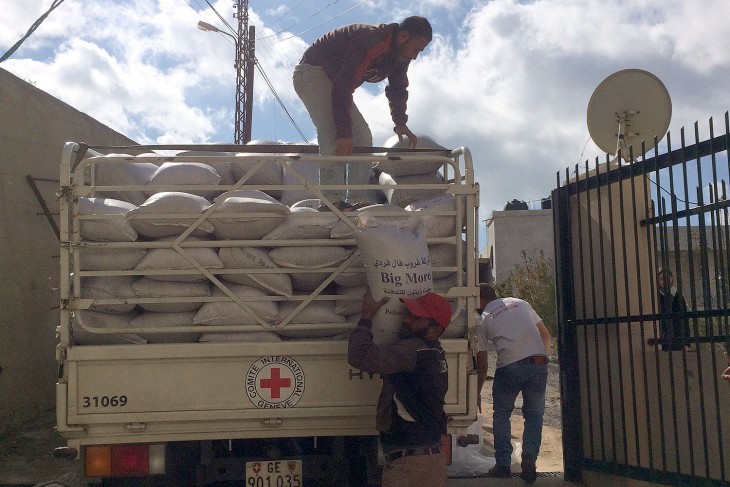
The ICRC truck being unloaded at the health clinic
Located at more than 1,300 meters above sea level on the slopes of Mount Hermon, this secluded area is also exposed to adverse weather conditions. Last January, it was hit by the Zina storm, claiming the lives of several Syrian refugees and seriously affecting many other inhabitants.
"Life is not easy here at times, and access to health services remains a major concern, especially in winter. It often snows heavily, roads get blocked and it becomes difficult to move around," says the director of the Al Rahma health clinic, Mohamed Al Jarrar.
"Last year, because of the snow and the cold, we even had to close our clinic for a few days. But this winter, thanks to the biofuel supplied by the ICRC, we'll be able to receive and treat our patients in warm conditions."
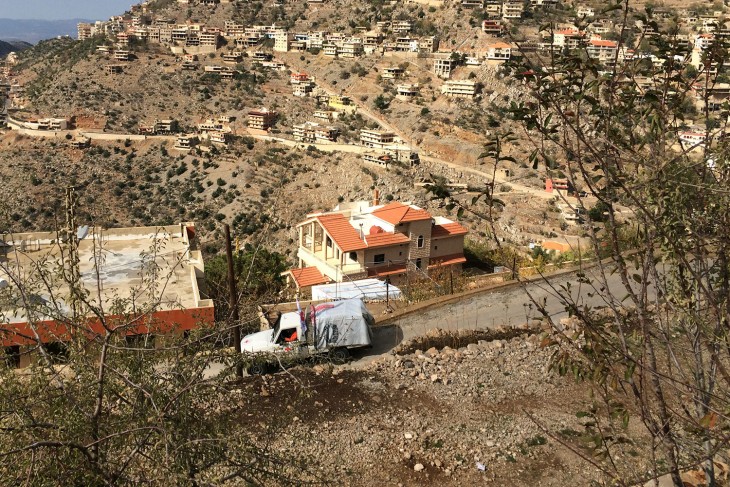
Treacherous driving conditions, especially when roads are covered with snow
The Al Rahma clinic is the main medical facility in the area. It provides services to both Syrian refugees and Lebanese residents, including the most vulnerable of both groups. Earlier this year, the ICRC installed in the clinic a heating system with a biomass boiler, which needs to be fed with olive husk only once every five days. A total of 19 tons of olive husk are needed to power the boiler all year round. The boiler is easy to operate, ensuring uninterrupted heating of the premises.
"It is quite an innovative approach, which is prompted by the natural environment itself," explains Bahjat Mansour, an ICRC engineer who manages water and habitat projects in the south of Lebanon.
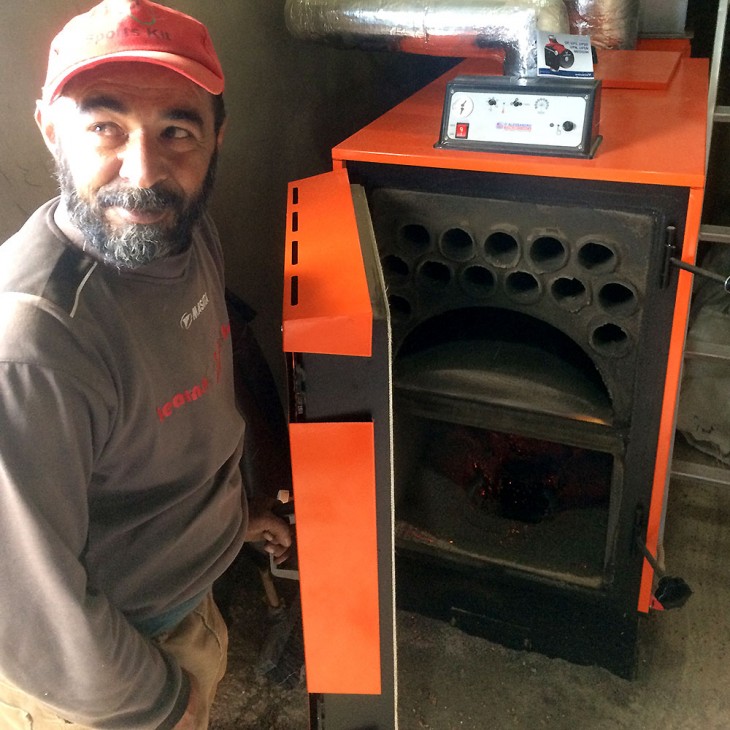
The biomass boiler up close
Olive husk is a byproduct of olive oil production. It is abundantly available on the local market in Lebanon, which is a country with a multitude of olive groves and presses.
"Not only is olive husk an environmentally friendly source of energy, it is also nearly three times more cost-efficient than traditional fuel oil. Furthermore, purchasing the olive husk locally is beneficial to the local economy," adds Bahjat. "In fact, we are also considering for this area the use of other organic compounds such as pine cones and nut and almond shells.
"Olives are a symbol of the Middle East. They have a tremendous practical and cultural significance," states Bahjat. "It's amazing that they can also bring warmth, which can be especially meaningful to those who need it the most."

